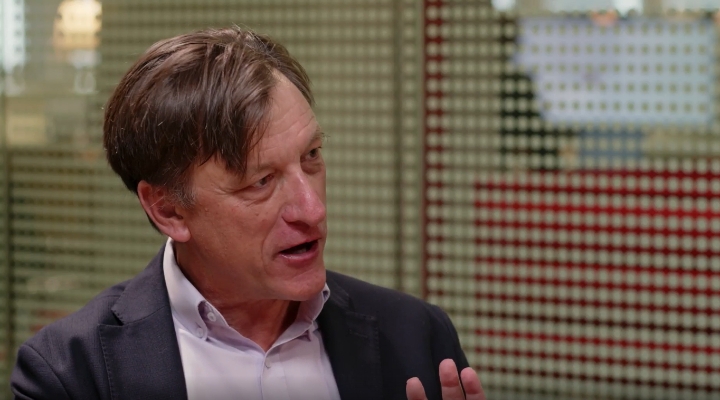
In this series of short profiles, we ask leading fund managers to defend their investment strategies, reveal their views on cryptocurrency, and tell us what they'd never buy.
This week our interviewees are Eric Khaw, Senior Portfolio Manager and Peter Monson, Portfolio Manager of the Asia ex Japan Equities fund at Nikko Asset Management.
Which Sector Shows the Biggest Promise in 2023?
In our view we are likely at the turning point of multiple cycles. One is the US market reversing its outperformance relative to Asia, but more specifically within Asia we’d contend that tomorrow’s winners are likely to be in sub-sectors geared to consumption, healthcare, supply chain relocation and the world’s energy transition.
What's the Biggest Economic Risk Today?
The biggest risks are well discussed today and in the case of inflation and rising rates – things are starting to break. At least with interest rates we’d note that for most Asian countries the total rise in rates is much lower than in the US, EU or UK, and the overall level is in line with 10-year averages (versus considerably above in developed markets).
Describe Your Investment Strategy
Simply put we believe in “harnessing change” to deliver sustainable returns in Asian equities. That’s because Asian markets are amongst the most dynamic and fast changing anywhere in the world.
We are bottom-up stock selectors at heart and our investment universe is increasing at a rate unmatched by any other region in the world. This is great for a well-resourced, diverse and experienced team.
Which Investor Do You Admire?
Peter: It’s hard not to include Warren Buffett, he would be considered one of the patriarchs of “sustainable return” investing at a good price. What’s less well known about him however is the change in his approach. He was a deep value investor, which served him well during his first decade of investing (timing was great for value) but it wasn’t until he met Charlie Munger that they became focused on quality growth at a reasonable price.
I highlight this for two reasons, one is the importance of significant fundamental change – styles go in and out of favour. Secondly, it’s about a co-manager approach to investing – two well-matched individuals with mutual respect are stronger than any individual.
Name Your Favourite 'Forever Stock'
Peter: “Forever” is too dangerous a word as things can always change.
Eric: Fundamentally, a “Forever Stock” is not a concept I believe in since change is the only constant. Throughout history, we have seen that even the best run companies can undergo negative changes and lose their way. On the other hand, a poorly run company can go through positive changes to become a great company.
What Would You Never Invest In?
Peter: Negative fundamental change.
Eric: Never say never but airlines come close. Too many moving parts, not enough sustainable returns and few have made money investing in an airline.
Growth or Value?
Peter: Growth via Fundamental Change.
Eric: Growth only when it’s sustainable, and value only when there is promise of growth in the future.
House or Pension?
Peter: House, preferably with a view.
Eric: Depends on where we are in the cycle. In Asia, we have grown up seeing many people get rich by hopping on the property train. This is especially true in Singapore where everyone on the street thinks they are a real estate analyst. At the right part of the cycle, a house has extra leverage to a rising asset class, but the converse is also true and can be extremely painful.
Crypto: Brilliant or Bad?
Peter: The underlying technology can be brilliant.
Eric: Bad in a world that is tightening but there is probably a place for it as an asset class in the longer term.
What Can be Done to Improve Diversity in Fund Management?
We’re big believers in the power of diversity when combined with mutual respect. But diversity is a mindset and not a number. It encompasses more than just age and gender; it extends to both cultural and cognitive diversity as well. Our 21-person team is likely one of the most diverse on the street and one of the things we’ve broadened our understanding of in recent years is our differences in cognitive diversity, utilising the [psychometric test] CliftonStrengths to highlight and better understand each other’s points of view. This has been a real eye opener for most of us and something we believe has led to better debates and ultimately better decision making within the team.
We (Eric & Peter) have some overlapping traits but one of the biggest contrasts is one being more contextual (likes to look at history as a guide to the future) while the other is more futuristic (inspired by the future).
Have you Ever Engaged with a Company and Been Particularly Proud (or Disappointed) in the Outcome?
We engage with every company we invest in, ones that make the portfolio are typically those that we are prouder of, the ones that don’t make the cut or don’t listen to engagement are the more disappointing ones.
What’s the Best Advice You’ve Ever Been Given?
Peter: Don’t trim the flowers to water the weeds (this is investment advice!)
Eric: On my first day of work fresh out of college, my first boss sat me down. Instead of running through the investment process with me, he told me four important words: “Stay hungry, stay teachable”.
What Would You be if You Weren’t a Fund Manager?
Peter: One of three odd and completely unrelated jobs – either an aspiring astronaut, archaeologist, or devout Coca-Cola employee.
Eric: As a child, I would watch in awe as the garbage truck mechanically picked up garbage and I would tell my parents that was what I was going to do when I grow up.

























